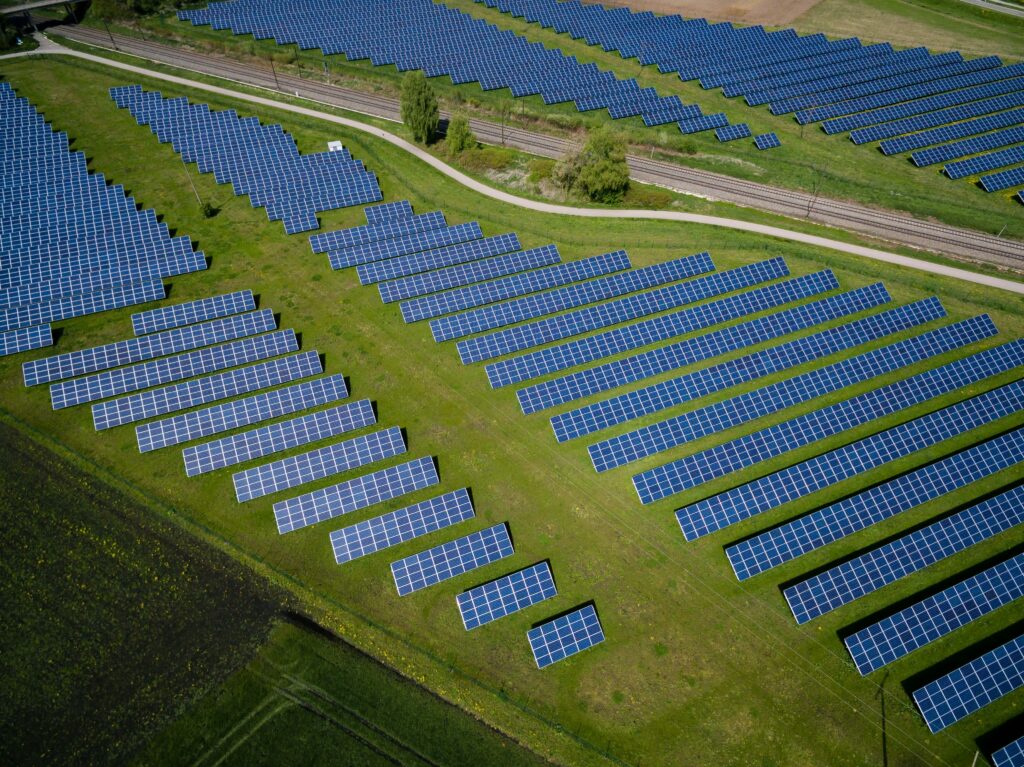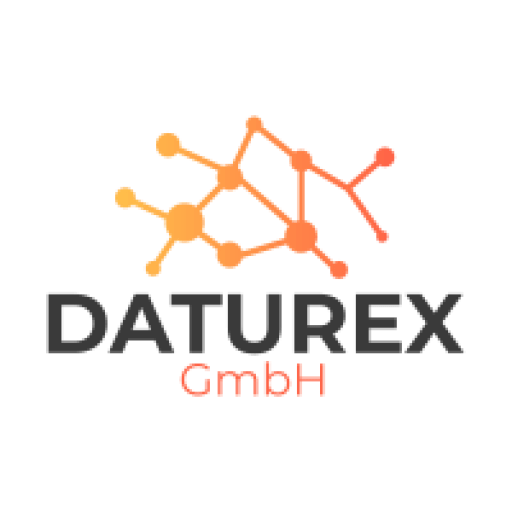Blockchain technology has developed rapidly since its introduction in 2009. What once began as the basis for Bitcoin is now used in numerous industries. The Distributed ledger technology offers advantages such as transparency and immutability that go far beyond cryptocurrencies.
Experts see enormous potential in blockchain applications for 2024 The market for Decentralized applications is expected to grow by 8.62% per year until 2028. This forecast shows how diverse the potential applications of the technology are.
In this article, we take a look at the most exciting Blockchain applications 2024. We show how technology is changing industries and what opportunities it offers for companies and consumers.
Key findings
- Blockchain technology is used in various industries
- Forecasts predict strong growth for Decentralized applications until 2028
- Distributed ledger technology offers advantages such as transparency and security
- Blockchain applications 2024 go far beyond cryptocurrencies
- Technology is revolutionizing processes in business and society
Introduction to blockchain technology
Blockchain technology is revolutionizing the way we store data and carry out transactions. It forms the foundation for innovative applications far beyond cryptocurrencies.
What is blockchain?
Blockchain is a form of Distributed ledger technology. It works like a digital account book that records transactions in a tamper-proof manner. Each entry is saved in blocks and linked to the previous one.
Basic mode of operation
The blockchain enables secure Peer-to-peer transactions without intermediaries. New entries are checked by network participants and then added to the chain. This structure makes subsequent changes practically impossible.
Advantages over traditional systems
Blockchain offers several advantages:
- Transparency: All transactions are visible to participants
- Security: Data is cryptographically encrypted
- Decentralization: No single player controls the system
- Efficiency: Direct transactions save time and costs
These properties make blockchain technology attractive for many industries beyond the financial world. From supply chains to healthcare - the potential applications are diverse and promise to fundamentally improve existing processes.
Blockchain applications 2024: an overview
The Crypto ecosystem is developing rapidly and bringing new Blockchain applications 2024 emerge. The technology is finding its way into various sectors and fundamentally changing traditional business models.
In the healthcare sector, blockchain enables secure patient data and improved medication tracking. Media companies use the technology for transparent copyright management and fair remuneration models.
The financial sector is experiencing a revolution through blockchain applications in 2024. Banks are integrating digital assets into their offering in order to remain competitive. Mastercard is even planning to support selected cryptocurrencies directly.
The future of money is digital. Nine out of ten central banks worldwide are considering the introduction of digital currencies.
This development shows how deeply blockchain is Crypto ecosystem has already penetrated. From Smart contracts through to decentralized financial systems - the application possibilities seem limitless.
- Transparent supply chains
- Forgery-proof digital identities
- Automated contract processing
- Efficient energy management
The diversity of blockchain applications in 2024 illustrates the enormous potential of this technology to permanently change our daily lives and the economy.
Smart contracts: The future of automated contracts
Smart contracts are revolutionizing the way we make and implement agreements. These automated contracts use blockchain technology to process transactions securely and efficiently.
Definition and functionality of smart contracts
Smart contracts are digital protocols that convert contractual conditions into code. They execute themselves as soon as defined conditions are met. This enables fast, transparent and cost-effective transactions without a middleman.
Areas of application in various industries
There are many possible applications for smart contracts:
- Financial sector: Automated lending and insurance processing
- Real estate sector: Simplified property transfers
- Supply chains: Transparent tracking of goods
- Healthcare: Secure management of patient data
Advantages and challenges
Smart contracts offer considerable advantages such as time savings, cost reductions and increased security. However, they also face challenges. The legal classification is often unclear and technical errors can have serious consequences. Nevertheless Automated contracts as a forward-looking technology with great potential.
"Smart contracts will fundamentally change the way we do business. They create trust through technology." - Vitalik Buterin, Ethereum co-founder
Supply chain management with blockchain
Blockchain technology is revolutionizing the Supply Chain Management. It enables unprecedented transparency and traceability in the supply chain. Companies can now track products seamlessly from origin to the end consumer.

A key element of this transformation is the IoT integration. Sensors and smart devices provide real-time data that flows directly into the blockchain. This significantly improves the monitoring and control of the entire supply chain.
Blockchain and IoT are the future of supply chain management. They create trust, reduce costs and optimize processes.
Large companies such as Walmart and Maersk are already using blockchain solutions for their supply chains. They benefit from increased efficiency, reduced costs and improved food safety.
| Advantages | Examples |
|---|---|
| Transparency | Proof of origin for products |
| Efficiency | Automated payment processing |
| Security | Forgery-proof product identification |
| Real-time monitoring | IoT-supported temperature control |
The integration of blockchain in the Supply Chain Management holds enormous potential. It promises a future with more transparent, efficient and secure supply chains. Companies that adapt this technology at an early stage can secure a decisive competitive advantage.
Digital identities and blockchain
Blockchain technology is revolutionizing the management of digital identities. It offers new possibilities for security and Data protection in an increasingly networked world.
Security and data protection through blockchain
Blockchain enables the creation of secure and self-determined digital identities. Users retain control over their personal data. The decentralized structure of the blockchain makes it difficult for hackers to manipulate or steal data.
Applications in government and the private sector
Governments use blockchain for e-government services. Citizens can securely access government services. In the private sector, the technology simplifies know-your-customer processes. Banks verify customer identities faster and more securely.
| Range | Application | Advantage |
|---|---|---|
| Government | E-Government | Secure citizen services |
| Financial sector | KYC processes | Fast identity check |
| Healthcare | Patient files | Data protection and access control |
Challenges during implementation
The introduction of blockchain-based digital identities faces hurdles. Scalability remains a technical problem. Legal questions about the Data protection must be clarified. Broad acceptance among the population is crucial for success.
"Blockchain has the potential, digital identities safer and more self-determined. However, the technology must be developed further to meet the requirements of the mass market."
Blockchain in the healthcare sector
The integration of Blockchain in the healthcare sector revolutionizes the way in which Medical data managed and shared. This innovative technology promises increased security and efficiency when handling sensitive patient information.
Electronic health records benefit in particular from blockchain technology. Patients gain more control over their data, while doctors can access important information more quickly. This leads to improved treatment quality and patient safety.
Another area of application of the Blockchain in the healthcare sector is the tracking of medicines in the supply chain. This helps to prevent counterfeiting and ensure the quality of medicines. Clinical trials also benefit from the increased transparency and integrity of the data.
"Blockchain in healthcare offers the potential to securely manage patient data while increasing the efficiency of the entire healthcare system."
Despite the promising prospects, there are still challenges to overcome. Data protection concerns and the need for interoperability between different systems are important aspects that need to be considered when implementing Blockchain in the healthcare sector must be taken into account.
- Improved security of patient data
- More efficient management of electronic health records
- Optimized drug tracking in the supply chain
- Increased quality of clinical studies
The future of blockchain in healthcare promises safer, more transparent and more efficient healthcare. As the technology continues to develop and adapt, the benefits for patients, doctors and the entire healthcare system are becoming ever clearer.
Tokenization of assets
The Tokenization of assets is revolutionizing the financial market. It makes it possible to digitally map and trade real values. This creates new opportunities for investors and companies.
What is tokenization?
Tokenization converts physical or digital assets into blockchain-based tokens. These tokens represent shares in the original assets. The concept opens up opportunities for fractional ownership and increases the liquidity of assets.
Applications in real estate and art
Tokenization is widely used in various areas:
- Real estate: Investors can acquire shares in buildings
- Art: Digital artworks as NFTs (non-fungible tokens)
- Shareholdings: Simplified trading of company shares
Legal aspects and regulation
The Tokenization of assets brings with it legal challenges. Regulatory authorities are working on framework conditions to protect investors. Important aspects are
| Aspect | Meaning |
|---|---|
| Ownership issues | Clarification of the legal position of token holders |
| Taxes | Determination of the tax treatment of tokenized assets |
| Consumer protection | Protective measures for retail investors in token investments |
The Tokenization of assets offers a wide range of possibilities. However, it requires a clear legal framework for broad acceptance and safe use.
Blockchain in the energy industry

The energy sector is experiencing a revolution thanks to blockchain. This technology enables new ways of supplying and distributing energy. Blockchain in the energy industry creates decentralized markets and promotes direct trade between producers and consumers.
One of the main advantages is the integration renewable energies. Blockchain-based systems facilitate the feed-in and distribution of solar power or wind energy. This leads to more efficient power grids and reduces energy losses.
Microgrids benefit in particular from this innovation. They enable local energy communities to operate more independently and sustainably. Blockchain makes the certification of green energy more transparent and tamper-proof.
| Application | Advantages |
|---|---|
| Peer-to-peer trading | Direct energy exchange |
| Microgrids | Local energy autonomy |
| Green certificates | Transparent guarantees of origin |
Despite promising prospects, the Blockchain in the energy industry hurdles still lie ahead. Scalability and regulatory adjustments remain key challenges. Nevertheless, the trend shows that blockchain will permanently change the energy sector and make it more efficient.
Decentralized financial systems (DeFi) and their applications
Decentralized financial systems (DeFi) revolutionize the Crypto ecosystem. They offer financial services without banks or other intermediaries. DeFi uses blockchain technology for secure and transparent transactions.
What is DeFi?
DeFi stands for an open financial system. Anyone can participate, no matter where they live. It enables money transfers, loans and trading without centralized control. This makes it faster and often cheaper than conventional banks.
Lending and borrowing platforms
Lending platforms are an important part of DeFi. Users can lend or borrow money here. Interest is calculated and paid out automatically. This all happens in the crypto ecosystem, without a bank in between.
Decentralized exchanges (DEX)
DEX are another core component of DeFi. They allow the direct trading of cryptocurrencies. Users retain control over their funds. This increases security and lowers costs. DEXs contribute to the growth of the entire DeFi sector.


Recent Comments